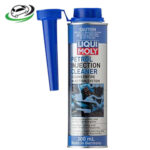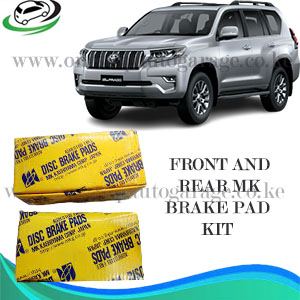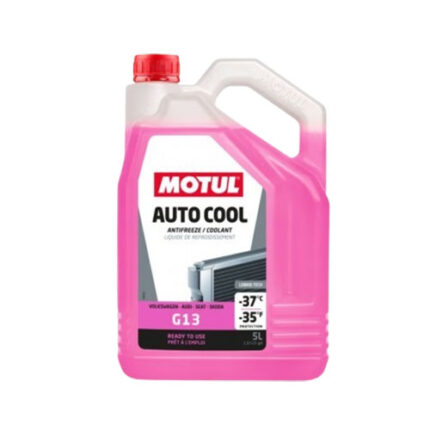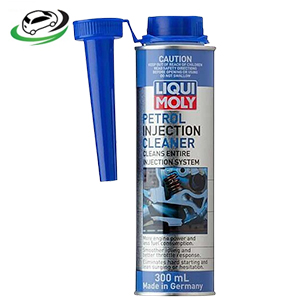Get Fuel Injection Cleaner – 8361 Liqui Moly in Kenya
Modern internal combustion engines rely heavily on fuel injection systems to deliver precise amounts of fuel into the combustion chamber, ensuring efficient performance, reduced emissions, and optimized fuel economy. Over time, these systems can become clogged with deposits, leading to reduced efficiency and potential engine issues. A Fuel Injection Cleaner is a chemical solution designed to address these problems, ensuring that the engine performs at its best. This comprehensive guide explores its properties, functions, benefits, application, and impact on engine performance.
1. What is a Fuel Injection Cleaner?
A Fuel Injection Cleaner is a specially formulated chemical additive designed to clean the fuel injectors and related components in a vehicle’s fuel delivery system. By removing carbon deposits, varnish, and other contaminants, the cleaner helps maintain the optimal flow and atomization of fuel.
Key Features:
- Cleans fuel injectors and intake valves.
- Improves fuel atomization for efficient combustion.
- Reduces engine knocking and hesitation.
- Compatible with gasoline and diesel engines.
2. Why is Cleaning Fuel Injectors Important?
Fuel injectors are critical components in modern engines. They are responsible for spraying precise amounts of fuel into the combustion chamber at high pressures. However, they can become clogged over time due to:
- Carbon deposits from incomplete combustion.
- Fuel varnish buildup from degraded gasoline or diesel.
- Contaminants introduced through low-quality fuel.
Clogged fuel injectors disrupt the spray pattern and reduce fuel atomization, leading to:
- Reduced fuel efficiency.
- Increased emissions.
- Loss of power and engine performance.
- Difficulty starting the engine.
3. How Fuel Injection Cleaner Works
A Fuel Injection Cleaner works by dissolving and removing deposits from the injectors, intake valves, and combustion chamber. The solution includes powerful detergents and solvents that break down carbon buildup and varnish.
Key Processes:
- Dissolution: The cleaner dissolves carbon and varnish deposits that have adhered to injector nozzles and valves.
- Restoration: It restores the spray pattern and ensures precise fuel delivery.
- Combustion Efficiency: The cleaner promotes more complete combustion, reducing unburned hydrocarbons and soot.
4. Benefits of Using Fuel Injection Cleaner
1. Improved Engine Performance
- Restored injector spray patterns improve fuel atomization, resulting in better throttle response and smoother acceleration.
2. Enhanced Fuel Economy
- Clean injectors ensure optimal fuel delivery, reducing fuel wastage and improving mileage.
3. Reduced Emissions
- Efficient combustion minimizes the release of harmful pollutants, helping the vehicle meet emissions standards.
4. Extended Injector Lifespan
- Regular cleaning prevents excessive wear and corrosion, prolonging the life of the injectors.
5. Smoother Idling and Starting
- Eliminates rough idling and hard starts caused by clogged injectors.
5. Signs Your Vehicle Needs a Fuel Injection Cleaner
- Poor Fuel Economy: Increased trips to the fuel pump.
- Engine Hesitation: Delayed response during acceleration.
- Rough Idling: The engine feels shaky or unstable at idle.
- Black Smoke: Excessive exhaust smoke indicating incomplete combustion.
- Check Engine Light: Injector-related issues may trigger fault codes.
6. Application of Fuel Injection Cleaner
1. Adding to Fuel Tank
Most fuel injection cleaners are added directly to the fuel tank:
- Pour the recommended amount into the tank before filling it with fuel.
- Ensure proper dilution for effective results.
2. Frequency of Use
- Typically recommended every 3,000 to 5,000 kilometers or during oil changes.
- Can also be used before a long road trip to optimize performance.
3. Professional Cleaning
For severe clogs, a mechanic may use concentrated cleaning solutions with specialized equipment for direct injector cleaning.
7. Types of Fuel Injection Cleaners
1. Gasoline Engine Cleaners
- Specifically formulated for gasoline-powered vehicles.
- Focus on removing varnish and carbon deposits.
2. Diesel Engine Cleaners
- Target soot and diesel particulate buildup.
- Include lubricants to protect high-pressure fuel pumps.
3. Universal Cleaners
- Compatible with both gasoline and diesel engines.
- Offer a balanced cleaning solution for general use.
8. How to Choose the Right Fuel Injection Cleaner
1. Engine Type
Ensure the cleaner is compatible with your vehicle’s engine type (gasoline or diesel).
2. Detergent Strength
Choose a product with effective detergents for thorough cleaning, especially if the vehicle has high mileage.
3. Additives
Look for additional benefits such as corrosion protection, lubrication, and cetane/octane boosting.
4. Brand Reputation
Opt for well-known brands like Liqui Moly, Chevron, or STP for reliable performance.
9. Compatibility with Modern Engines
Direct Injection Engines
- These engines are more prone to carbon buildup due to their high-pressure systems.
- Regular use of a fuel injection cleaner is essential for maintaining performance.
Turbocharged Engines
- Turbochargers amplify combustion demands, making clean injectors crucial for optimal performance.
10. Environmental Impact
1. Reduced Emissions
Fuel injection cleaners contribute to cleaner exhaust emissions by promoting complete combustion.
2. Fuel Economy
Improved mileage results in lower greenhouse gas emissions per kilometer driven.
3. Preventing Waste
By extending injector life, cleaners reduce the need for replacements, minimizing material waste.
11. Myths About Fuel Injection Cleaners
Myth 1: All Fuel Additives Are the Same
- Truth: Fuel injection cleaners are specifically designed for injectors and differ from general fuel system cleaners.
Myth 2: Only Older Cars Need It
- Truth: Even modern vehicles benefit from regular cleaning due to the high precision of their injection systems.
Myth 3: They Can Replace Regular Maintenance
- Truth: While helpful, fuel injection cleaners are not a substitute for professional maintenance and timely oil changes.
12. Common Mistakes When Using Fuel Injection Cleaners
- Overdosing: Using more than the recommended amount can damage components.
- Infrequent Use: Sporadic use reduces the cleaner’s effectiveness in preventing buildup.
- Ignoring Symptoms: Delaying the use of a cleaner can exacerbate injector issues.
13. Maintenance Tips for Fuel Injection Systems
- Use high-quality fuel to reduce contaminants.
- Change the fuel filter regularly to prevent debris from reaching injectors.
- Use fuel injection cleaner as part of routine maintenance.
- Monitor for early signs of injector clogging, such as rough idling or hesitation.
14. Conclusion
A Fuel Injection Cleaner is an invaluable tool for maintaining the performance, efficiency, and longevity of modern engines. By removing deposits and protecting sensitive components, it ensures that your vehicle runs smoothly, consumes less fuel, and emits fewer pollutants. Whether you’re a daily commuter, a fleet manager, or a performance enthusiast, incorporating a fuel injection cleaner into your maintenance routine can significantly enhance your driving experience.
Follow us on Facebook for more parts.






